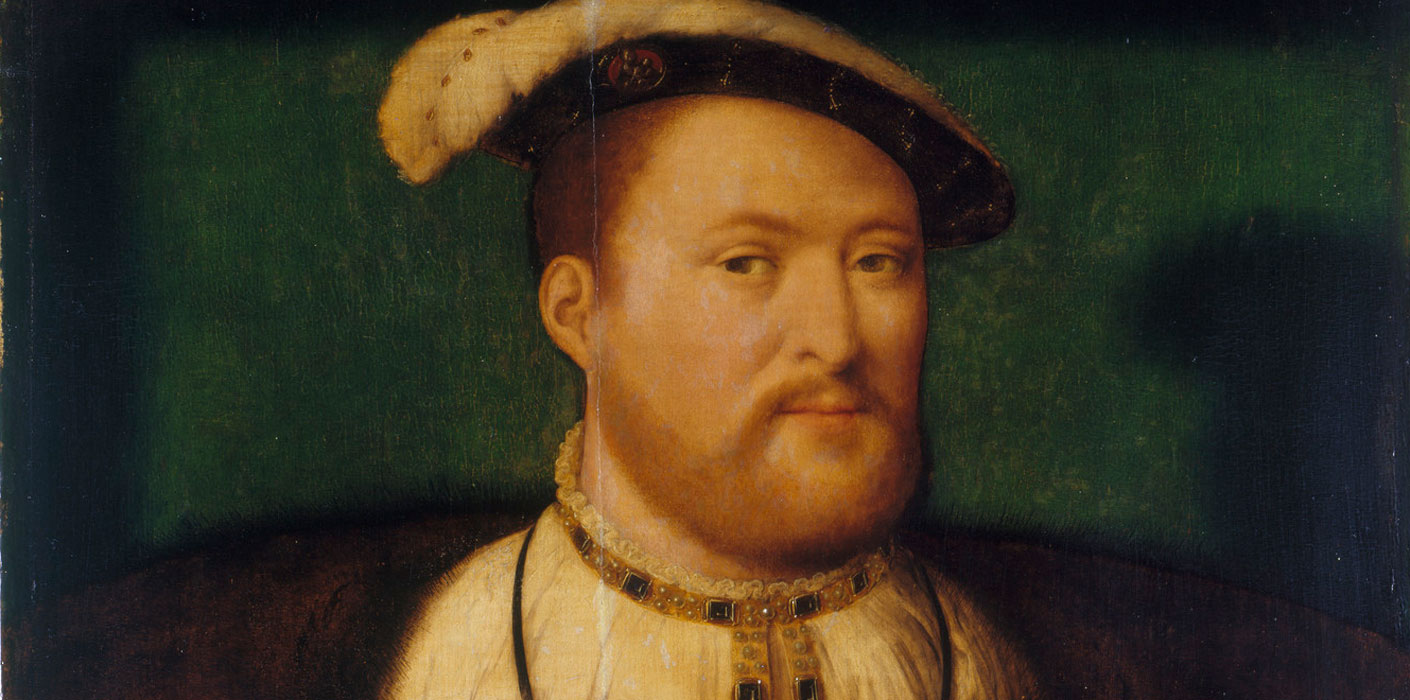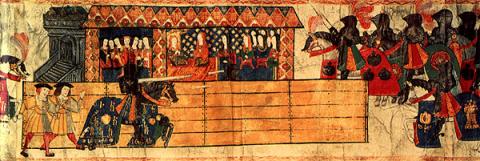He’s remembered as one of the swaggering symbols of the Tudor period, a famous womaniser with six wives, desparate for a male heir and – of course – one of the most influential figures when it comes to the face of the globe’s religions today, after he broke away from the Catholic Church in what became known as the reformation.
But Henry VIII may have been so fearsome, erratic and impotent because of a brain injury caused by a freak jousting accident, according to a team of US researchers at the Yale Memory Clinic.

A team at the Clinic, a memory and congnitive function of the Yale School of Medicine, was led by Dr Arash Salardini to discover the impact of repeated traumatic brain injuries, similar to those endured today by rugby or american football players.
According to the study, the King “suffered from many symptoms which can unambiguously be attributed to traumatic brain injury”.
Sounds unbelievable? Dr Salardini says the clues are there to be seen. In an interview with History Extra they said: “I thought [Henry] was a man with personality disorder, possibly narcissistic with sociopathic tendencies who had some form of mood disorder later on his life and took it out on his subjects. That is not what I ended up finding.”

Dr Salardini said that though the team went into the study with an open mind – intending to explore the various diseases Henry was rumoured to have suffered from – they found a picture “so consistent with the sequel of chronic concussion” that they found no other explanation for the symptoms.
They then set about taking a neurological, rather than historical, approach to their work. “We gathered data about the patient and localised most of the symptoms to the frontosubcortical circuitry [which affect memory, organisation and behavioural control] and the pituitary [the gland in the body that controls hormones],” explained Salardini.
In the paper they then published, the researchers investigated what could have caused Henry’s sudden change of behaviour in 1536 – described as becoming “cruel, petty and tyrannical”. They rejected conditions including diabetes, hypothyroidism and pyschosis as none could “account for the whole picture”.
Instead, they argued that a traumatic brain injury – possibly caused on one of his many hunts or jousting tournements held in Henry’s youth – could have caused a diffuse axonal injury, a common brain injury which damages the neurons that connect brain cells.

It could also have caused other medical issues Henry famously suffered from thanks to “pituitary dysfunction” – impotence, as described during his marriage to Anne of Cleves from 1540 by several sources, and his well-publicised weight gain, might have been some of these. Henry was also known to suffer from bouts of depression and gloomy moods.
The paper explains: “We know of at least three major head injuries in Henry’s life. He may have had headaches and more subtle changes to his personality after his first head injury [in March 1524, when the king was unseated after a jousting lance entered his open visor], but there is a marked stepwise change in him after 1536. It is entirely plausible, though perhaps not provable, that repeated traumatic brain injury lead to changes in Henry’s personality.”
And could there still be another explanation? According to Dr Salardini, probably not.
“An anatomical and pathologically consistent medical timeline emerged which I think should be the strongest evidence in support of the concussion, short of miraculously finding [Henry VIII’s] preserved brain in a jar”, he said.
